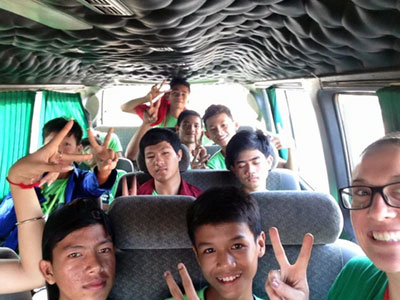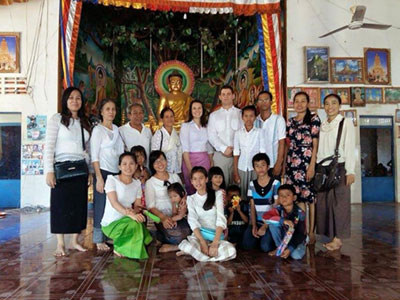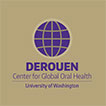Glocal health…what is Glocal health? “Glocal” health is a combined word of global and local health. Why would anyone think to combine them? They are two different things, right?

As you read the title to this blog post, I hope you all had these same type of questions run through your head. “Glocal” health is a phrase that I have come to love and have experienced since completing my Masters of Public Health in 2014 at Drexel University School of Public Health. Two weeks later I was on a plane to live in Cambodia for the next two years! Peace Corps was a milestone and goal that I had since I was sixteen years old. During my service, I taught English at a local high school and created a working experimental lab for the science curriculum with the science teachers. I also participated in youth development camps called Camp Star, Camp Glow and Camp Build. Each camp was a three-day, two-night event where we organized speakers and activities for the youth, typically high school students, to learn about challenging topics, such as environmental and climate change awareness and women’s empowerment, that are not taught in Cambodian public schools.

As a Peace Corps volunteer, challenging your boundaries and comfort zone becomes an everyday event. However, I had a great support group of women teachers who gave me inspiration and support every single day. Not only were they all incredibly intelligent, they were role models for the students at the school, girls in particular. One of these women, Sileap, a retired math teacher, was my host mom. When I was placed at my Peace Corps site in Kompong Thom providence, in Kompong Thmar town of Cambodia, I realized I had been placed with a wonderful family, who was clearly led by a strong women, my host mom. They were incredible forgiving and patient with me as I initially fumbled through Khmer language and customs. As I got better over my service, I realized how vital these women were to the high school and the community.
As a public health professional, I always paid attention to the health systems within my community. In Cambodia, healthcare is severely lacking, especially for those who live outside of the two large cities of Siem Reap and Phnom Penh. Once my host mom got more comfortable with me and my Khmer improved, she asked me about my teeth. She wanted to know, “How much money is a tooth in the United States?” Honestly, I did not know what she meant. How much? Why would you ever purchase a tooth? Boy, was I ignorant about dental needs. I asked her more closely why she would want to know the price of a tooth. She told that when she goes to the dentist, she often has a tooth pulled. She has had to buy a few teeth because they have pulled teeth in front of her mouth and teeth that she needed in order to chew her food. It all made sense why she was curious about the price of teeth because that is a procedure that she was familiar with. Receiving an extraction was a normal dental procedure for her, which is why she rarely visited the dentist.

Since completing the Peace Corps and moving back home to the Pacific Northwest, my current position serves the underrepresented and underserved communities in and around Washington State. When I first started this position in 2017, I was curious what the dental needs were among these communities. What I discovered was the needs of many of these communities are often similar to the needs of the communities living in rural Cambodia. Not only were they afraid of being seen, they also didn’t want any tooth to be pulled.
This is a perfect example of “Glocal” oral health. Arbitrary country lines do not dictate whether diseases are present or not. High-income countries, such as the United States, still have the same issues that exist in lower-middle income countries, like Cambodia. As global oral health dentists or public health professionals, adopting a “glocal” mindset will not only help us tackle issues within our own country but also globally.
Chelsea Stone is a Program Coordinator at the Office of Educational Partnerships and Diversity (OEPD) at the UW School of Dentistry
